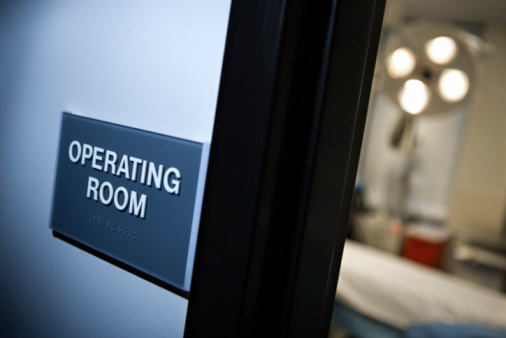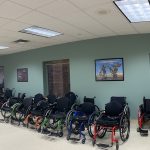Recent improvements including automation and computer tracking in the SCP are helping to make the facility more efficient. It’s all part of an ongoing 30-month renovation program of operating rooms (OR) and related areas that is to be completed in August 2014.
“We have made a significant investment in OR renovations. It’s important to upgrade services such as Surgical Central Processing that support our surgeons, OR teams, and patients,” says Albert Wright, UPMC Presbyterian’s vice president of Operations.
The project has proceeded in phases so only two or three ORs have been out of service at any time. Some of the work completed to date includes the completion of the second-floor Surgical Family Lounge, the location of which makes it convenient for surgeons to meet with families, and several universal ORs for use by a variety of surgical specialties. Upgrades have also been made to preoperative areas and the Postanesthesia Care Unit.
In the SCP, an automated washer was installed last year that allows technicians to push case carts into the booth-like washing unit, where they are run through a 12-minute cleaning cycle. “Previously, this work was done by technicians cleaning on their hands and knees, which was a very labor-intensive process,” says Mark Lunz, Surgical Central Processing’s director.
Automation increases consistency in the cleaning process and frees up more time for technicians to assemble case-specific instrument trays or inspect instruments for wear and damage, Mr. Lunz points out.
“Part of our role is to inspect needle holders, scissors, and many other instruments to ensure they work the way they are designed to work,” says Mr. Lunz. “Automation gives us the opportunity to devote more time to this quality-assurance aspect of our work.”
Paper recordkeeping also is being phased out. For example, new computer equipment has been installed in a room where flexible bronchoscopes, gastroscopes, and related devices undergo cleaning and high-level disinfection. Information such as the name of the technician cleaning the instrument, patient identifying data, and the scope’s serial number is documented electronically so it can be retrieved without searching paper files.
Other plans call for organizing the sterile storage area as a central repository for instruments and related supplies. “This reduces the chance that the surgical nurses will have to go on a hunt-and-gathering mission to find what the surgeon needs. They will know to come here, and the item can be found quickly, which means more time to focus on the patient,” says Mr. Lunz.
Keeping Operating Rooms Clean and Safe
By: Martin Kinnunen
A lot of work in hospitals goes on in places that patients never see. That’s true at UPMC Presbyterian’s Surgical Central Processing (SCP), where thousands of surgical instruments, case carts and related equipment are decontaminated and sterilized daily to handle the hospital’s busy surgical caseload.
-
Up NextWorld AIDS Day 2012: Destigmatizing AIDS in Appalachia
-
UPMC CancerCenter’s Ellis to Present at Quality Symposium
-
Hunting Safety Part 4: First Aid in the Field
-
Hunting Safety Part 3: Environmental Challenges
-
Hunting Safety Part 2: Exploring Gun Safety
-
Tips for a Safe – and Healthy – Hunting Season









